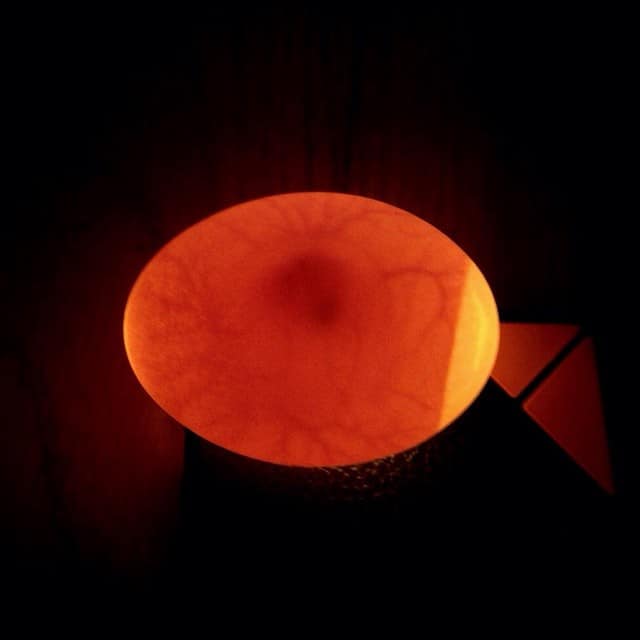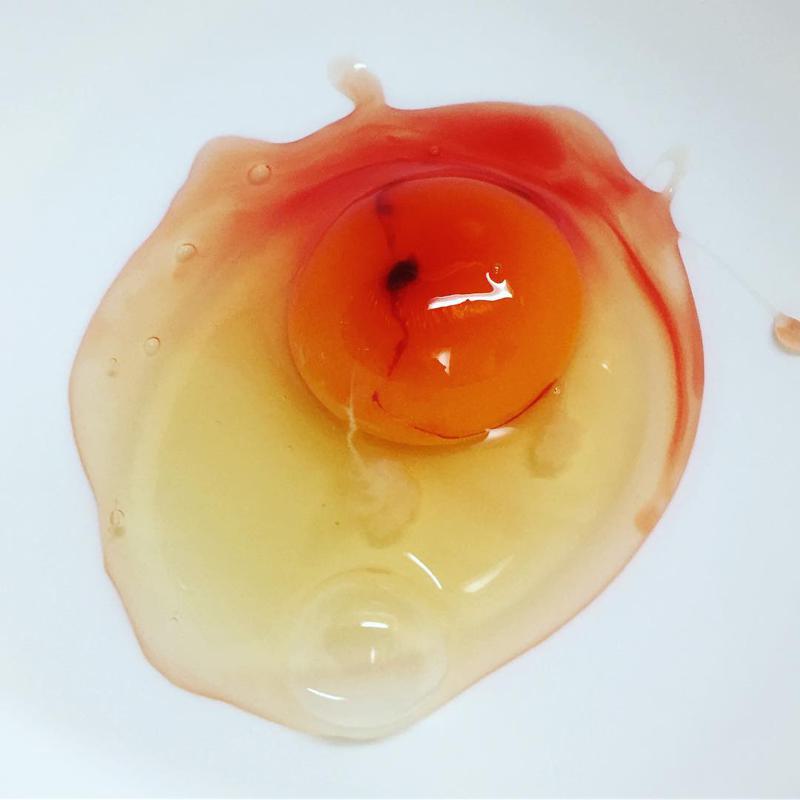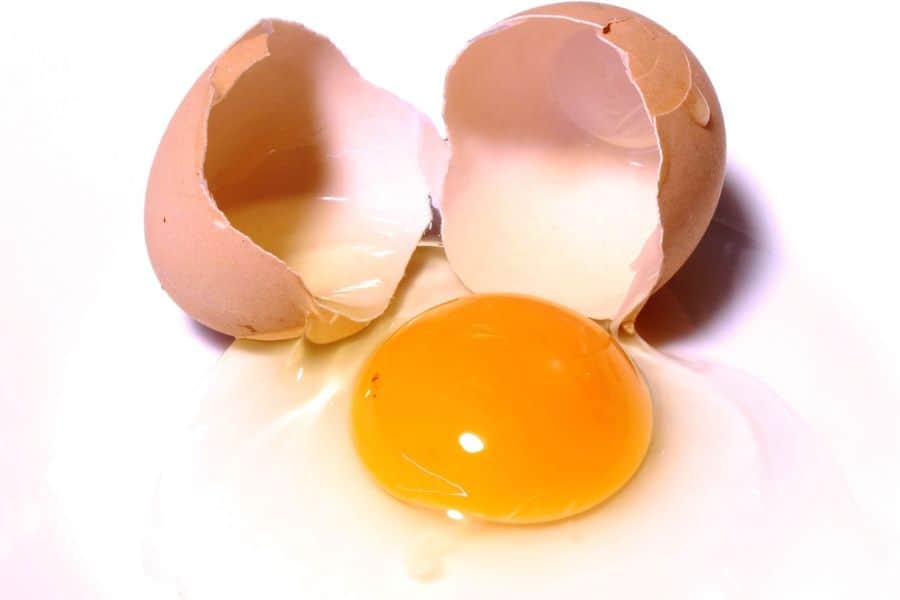The humble egg is one of life’s real marvels and the world’s most versatile food. It takes 24 to 26 hours to develop, and a hen can lay up to 250 eggs per year.
There are countless ways to prepare this natural nutritional powerhouse, both sweet and savory. In most cases, we use the unfertilized variety to make meals with eggs.
But what about fertilized eggs?
The Chinese and some other nations eat eggs in a way called balut. It is a partially developed chicken or duck egg that has been in an incubator for between 14 and 21 days, after which it is cooked and served to eat.
It may sound unusual to you that someone can eat a partially developed chicken, but this dish is a popular street food and a delicacy in many places.
In other places, if you asked a hundred people on the street should a person eat this type of egg, a vast majority of them would say no. Should this be the case, though? Are there differences between a fertilized and an unfertilized egg?
In case you wonder about this and similar questions, keep on reading! In this article, we will shed additional light on fertilized chicken eggs and whether they are safe to include in your diet.
How Does an Egg Become Fertile?
Before we answer the grand question from the article’s title, we need to clarify how an egg becomes fertile.
In chicken farming, we distinguish between the production of consumption eggs that are not fertilized and the breeding of breeding flocks whose eggs are fertilized.
Hens lay eggs regardless of whether the rooster is present or not. They breed only in the presence of a rooster. A chick cannot develop from an egg that does not contain an embryo or has not been fertilized.
An egg becomes fertilized when during mating, the rooster’s sperm penetrates the egg and fertilizes the blastodisc. Then blastoderm is formed. The blastoderm develops into the chick if the egg is incubated at the proper temperature and humidity levels. If put into the refrigerator, it stops developing.
Can You Eat Fertilized Eggs?
The short answer is yes!
The long answer goes something like this: the difference between a fertilized and unfertilized chicken egg is that from a fertilized egg, a chick can develop under the right circumstances, while no magic will help you turn an unfertilized egg into a living being.
Assuming you are getting your eggs from a place where eggs are collected daily, there is no difference between a fertilized and an unfertilized egg because even if you consume a fertilized egg, the embryo has had no time to develop.
And it is not just about the time – it is about the conditions as well. Laws in the US and many countries around the world require producers to refrigerate eggs when they collect them, and as we discussed earlier, cold temperature halts the growth of fertilized eggs. So, once again no embryo.
Looking at it from a nutritional value point, fertilized and unfertilized eggs are equal. There are various claims on the internet that fertilized eggs contain more nutrients than unfertilized ones. For example, some people think there is more protein in fertilized eggs.
However, no scientific proof supports these or similar claims.
In addition to these two types of eggs being the same nutritionally, they are also equal in terms of taste, color, and smell, and therefore fertilized eggs can be consumed safely.
When Not To Eat Fertilized Egg?

We have just seen in which ways fertilized and unfertilized eggs are the same. What are the differences between them (besides the obvious one, of course)?
Fertilized eggs rot faster and can only last for seven days, while an unfertilized broiler egg can last up to 30 days at room temperature.
So this means that fertilized eggs should not be consumed if they were not refrigerated for several days after they were collected from the incubator.
They are most probably rotten and are not safe for consumption. It is always best to store them in the fridge as soon as they are collected.
The second case when you do not want to consume a fertilized egg is when a hen has been sitting on it for more than a week.
Let’s say you decide to crack such an egg to make an omelet. In case the fetus inside of it is healthy, it will not be fully developed yet, and you will be left with an ugly scene and a bad conscience. If the fetus is already dead when you look inside the egg, you will be “just” left with an ugly scene. There is no need for either if you ask us.
The last point we will touch on is related to both fertilized and unfertilized varieties.
Eggs are often associated with food poisoning and salmonella (especially with the bacterium Salmonella enteritidis, which is only one of these bacteria’s many types and strains). This bacteria is found inside the egg and not on the shell, which is why heat treatment of eggs is very important.
If the eggs have not been correctly handled and gone through the proper heat treatment, you should not consume them, as the possibility of infection is not reduced to a minimum.
Are Backyard Chicken’s Eggs Fertilized?
In situations where a rooster is one of the members of your backyard flock, there is a good chance that the eggs you collect from the coop are fertile. If you do not want to hatch chicks, removing eggs from the coop at least once a day is important.
But even in case a rooster mates with a hen, it does not necessarily mean that eggs are always fertile.
Firstly, not all roosters produce viable sperm. Secondly, in general, a hen will stay fertile for 7 to 10 days following mating. It takes that much time for sperm to travel to the oviduct, which is where eggs are produced.
The eggs will stay fertile (even in the case of the hen not mating again) for two to three weeks after mating. Fertility will begin to decline after two weeks.
Are Supermarket Eggs Fertilized?
No! Supermarket eggs are not fertilized. Those are consumption eggs produced on commercial farms specialized only in egg production.
On these farms, hens are kept in cages, barns, or pastures, and as we have already mentioned, a young, healthy, about 21 weeks old hen lays an egg daily regardless of whether a rooster is present. And without one, a hen’s eggs cannot be fertilized.
However, if you still doubt, the tests we will talk about shortly will reveal whether the eggs you purchase in supermarkets are fertilized.
Can You Eat an Egg That Has Blood On the Yolk?

Many people are mistaken because they believe that a bloody spot, known as a meat spot, in the yolk indicates that the egg is fertilized. But it is not like that. It is only a spot of blood that sometimes appears in the egg because the capillary in the ovary of the laying hen has ruptured.
Whether this will happen depends on the age of the hen, the type of food it eats, etc., but it does not mean that the egg is not good to eat, and according to experts, this is actually a normal occurrence.
How to Determine Whether an Egg Has Been Fertilized?
If you really want to be sure you are not consuming a fertilized egg just because you prefer the unfertilized variety, you can do a couple of things.
Some people claim this can be done in several ways, but only two reliable ways exist to confirm egg fertility. One is by cracking the egg up, and the other is by the use of a special device called the otoscope.
Breaking the Egg
Break the egg into a dish and check for a fertility sign. It is a tiny white spot on the yolk called a germinal disc. If the germ spot looks like a solid white spot, it contains only female cells and is not fertile.
In a fertile egg, the germ spot looks like a bull’s eye or a circle with a clear center since it contains both female and male cells. At this stage, it is only a collection of cells that will not become a chick unless it is incubated.
Ovoscopy
Ovoscopy is a very simple way to determine whether an egg is in a fertile state not during incubation. It has been suggested that only about 90 percent of incubated eggs are fertile. To establish if this is the case, you need the light of a lamp or an otoscope device.
Ovoscopy is always done in a darkened room. Even with the best will, no fertile egg can be examined in detail in daylight or artificial light.
You need to put the device in a dark place, lay the egg with the thick end towards the light, and tilt it to see what is inside. Thanks to the strong light, you will easily spot the embryo.
The ideal time for checking is around the seventh day of incubation. At this point, fertilized eggs can be easily recognized by the dark dot in the middle, surrounded by fine blood vessels resembling a spider’s web. Unfertilized eggs do not have such a ‘spider web.’ They look completely homogeneous and without any structure.
Also Read: What Are Double Yolk Eggs?
Conclusion
The answer to whether you can eat a fertilized chicken egg is undoubtedly yes!
There is no need to be concerned about whether or not the eggs are fertilized. You will not be eating a baby chicken unless the egg is incubated.
Also, there is no nutritional or flavor difference between the two eggs.
So next time, while preparing an egg, instead of thinking about fertilized vs. unfertilized egg, consider all the benefits your health is getting from consuming it!

